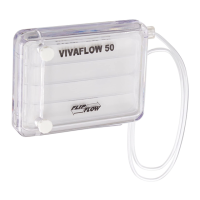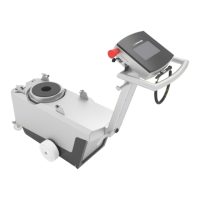9
Maximum Permissible Load on Load Receptor:
Model Max. torque Screwing torque Max. force opposite Max. forces
M
x
, M
y
, M
z
to direction of load (-F
z
) F
x
, F
y
, F
z
WZA224-N
WZA224-ND
WZA224-NC 2 Nm 1 Nm 3 N 20 N
WZA523-N
WZA523-NC 2.5 Nm 1 Nm 6 N 25 N
WZA1203-N
WZA1203-NC 4 Nm 2 Nm 15 N 40 N
WZA8202-N
WZA8202-NC 8 Nm 4 Nm 100 N 80 N
F
z
200 N
WZA25-NC 0.1 Nm 0.5 Nm 2 N 2 N
Higher loads may result in damage to the weigh cell.
Example:
Weigh cell with hook projecting out to the front.
Torque M
y
is the sum of the torque from the force of the weight
W
Load
, the torque of any excess weight being exerted W
Ex
and
the torque created by the intrinsic weight W
Hook
holding the
weight.
Example:
How heavy may the maximum off-center overload force
over
for a
WZA224-N at a load of M
Load
= 100 g and a hook arm length L
of 100 mm and an intrinsic weight M
Hook
= 60 g be?
M
Load
= M
Load
+ 9.81 m/s
2
+ L
M
Load
= 0.098 Nm
M
Hook
= M
Hook
+ 9.81 m/s
2
+ L / 2
M
Load
= 0.029 Nm
M
Ex
= F
Ex
+ L
M
y
= M
Load
+ M
Hook
+ M
Ex
W
Ex
= (M
corner
– M
Load
– M
Hook
) / L
W
Ex
= 18.7 N
However, even very small forces can trigger the overload
protection mechanism.
In general, load receptors should be constructed to be rigid to
bending and twisting. We recommend testing to avoid unwanted
feedback effects in the control loop. You should also take into
account the effects of drafts and observe all instructions for
analytical weighing.

